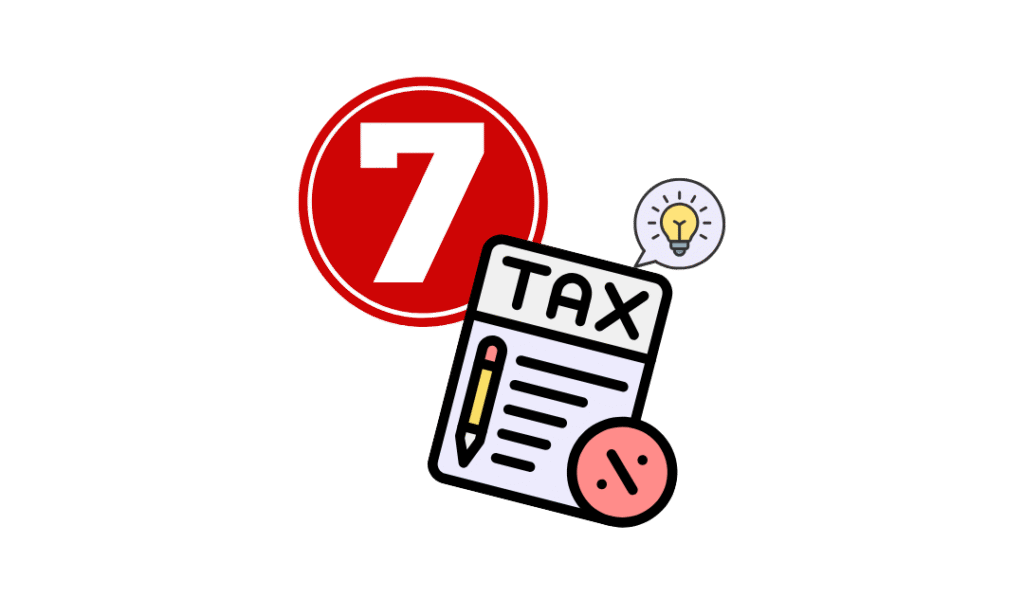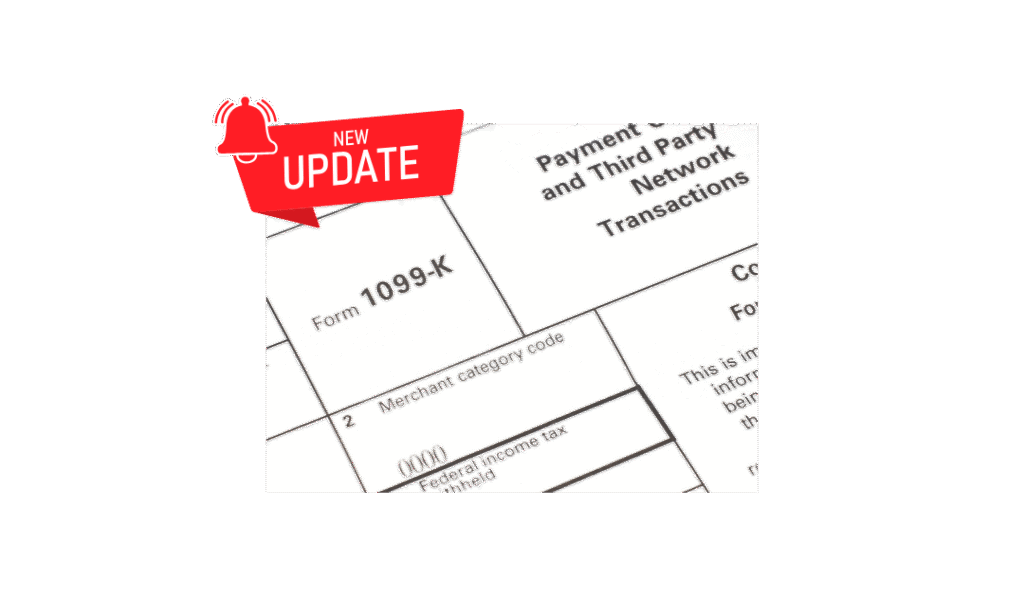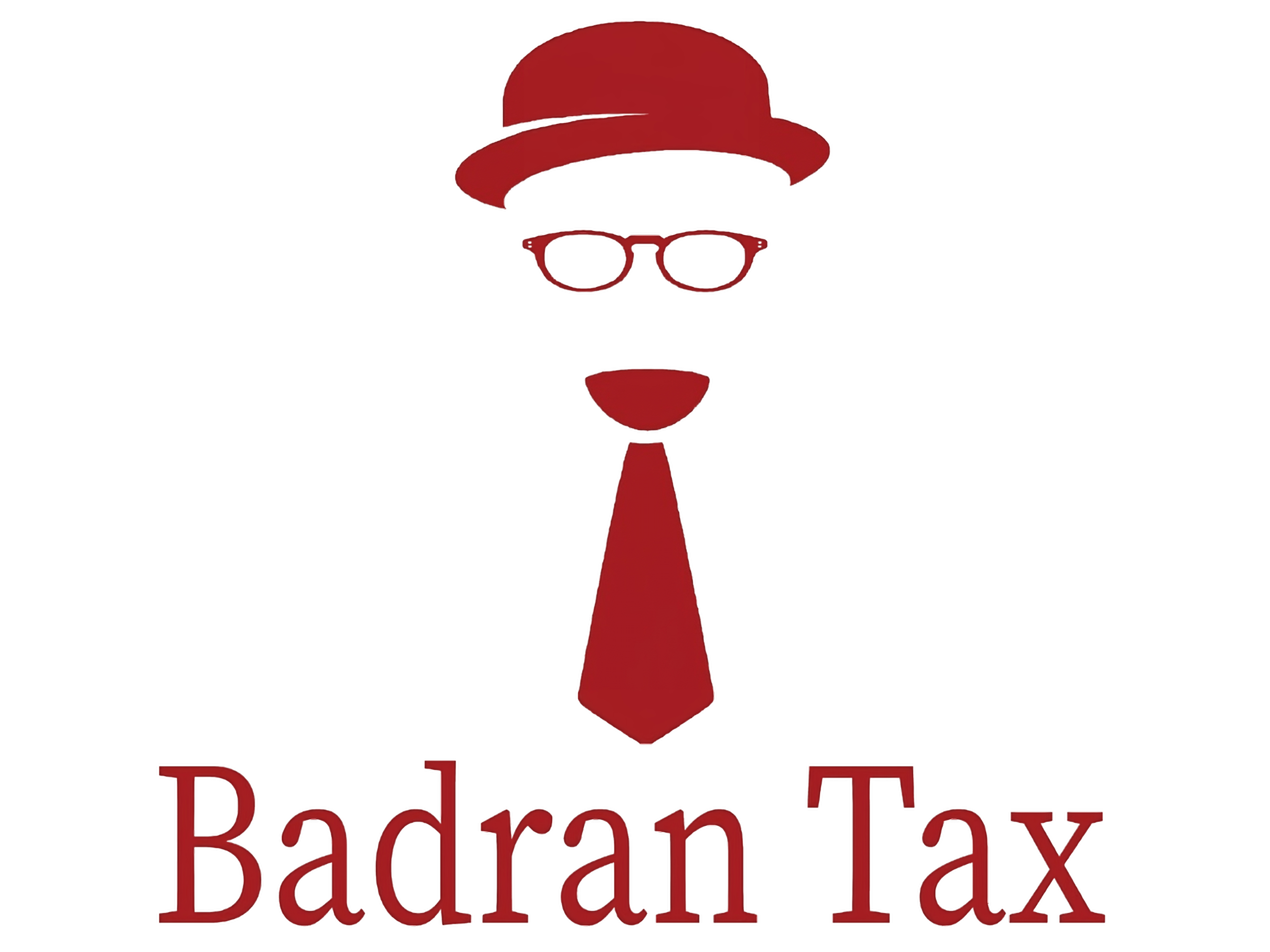Disclaimer
This blog post is provided for educational and informational purposes only.
It does not constitute tax, legal, accounting, or financial advice and should not be relied upon as a substitute for professional counseling tailored to your specific situation.
Always consult a qualified tax advisor or legal professional before making decisions based on this content.
Use of this site or information herein does not create a professional relationship between you and BadranTax LLC or its principals. Any reliance on the material is solely at your own risk.
While we strive to provide accurate, up-to-date information, BadranTax LLC makes no warranties, express or implied, regarding accuracy, completeness, or suitability of the content.
Links to external websites are provided for convenience only. BadranTax LLC does not endorse and is not responsible for the content or practices of third-party sites.
BadranTax LLC and its affiliates expressly disclaim all liability for any actions taken or not taken based on this information.
It’s almost August of 2025—now is the time to take action on key tax moves that can save money, prevent penalties, and help resolve IRS issues.
Mid-year strategic tax planning matters—especially if you’re resolving tax debt or trying to avoid surprises.
1. Max Out Retirement Contributions
These increased limits apply for 2025:
- 401(k), 403(b), 457 plans: $23,000 contribution; $7,500 catch-up if age 50+.
- Traditional/Roth IRA: $7,000; $1,000 catch-up if age 50+.
- SEP IRA: Up to 25% of compensation or $69,000.
| Account Type | 2025 Limit | Deadline |
|---|---|---|
| 401(k) | $23,000 (+$7,500 catch-up) | Dec 31, 2025 |
| IRA | $7,000 (+$1,000 catch-up) | Apr 15, 2026 |
| SEP IRA | 25% or $69,000 | Employer filing deadline |
Pro Tip: Contributing mid-year can reduce current taxable income and ease IRS payment efforts.
2. Harvest Investment Losses
If some of your investments are underperforming, selling them at a loss could help offset capital gains and reduce your overall tax liability.
This strategy—known as tax-loss harvesting—is particularly helpful for high-income earners looking to lower their exposure to higher tax brackets.
Example: If you realized $10,000 in capital gains earlier this year, selling losing investments worth $5,000 would reduce your taxable gains to $5,000, potentially saving hundreds in taxes.
Key Considerations:
- Offset Ordinary Income: After using losses to offset gains, you can apply up to $3,000 in additional losses against ordinary income annually.
- Carry Forward Unused Losses: Any remaining losses can be carried forward indefinitely for use in future tax years.
- Beware of the Wash-Sale Rule: The IRS disallows claiming a loss if you buy the same or “substantially identical” security within 30 days before or after the sale. Plan carefully to avoid this pitfall.
Pro Tip: Work with a professional to optimize this strategy, especially if you have complex portfolios or IRS debt considerations.
3. Maximize Charitable Giving
For 2025, there is no universal “above-the-line” deduction for charitable donations—you must itemize to claim deductions.
- Cash Gifts: Retain receipts for contributions over $250.
- Donor-Advised Funds: Combine future donations now to maximize deductions.
Example: A $5,000 donation in the 24% bracket can reduce your federal tax by around $1,200.
4. Review Withholding & Estimate Payments
- W-2 Employees: Submit a revised W-4 to align withholding.
- Self-Employed: Q2 estimated payment was due June 17, 2025—ensure Q3 and Q4 are on track.
5. Spend Your FSA Funds
Flexible Spending Accounts (FSAs) are “use-it-or-lose-it” accounts, meaning you may forfeit any unused funds at the end of the plan year (typically December 31).
Mid-year is a perfect time to check your balance and plan qualifying purchases:
- Medical Expenses: Schedule routine doctor visits, dental cleanings, or eye exams.
- Eligible Items: Purchase over-the-counter medications, first aid supplies, or prescription glasses.
- Dependent Care FSAs: Pay for eligible childcare or eldercare expenses.
Pro Tip: Some plans offer a short grace period or allow a small carryover into 2026. Check with your employer to confirm your FSA rules.
6. Defer Income for Tax Relief
Deferring income into 2026 can lower your 2025 taxable income and help you manage IRS balances more effectively—especially if you expect to be in a lower tax bracket next year.
- Employees: Ask your employer if a year-end bonus can be paid in January 2026 instead of December.
- Self-Employed: Delay invoicing for work completed in December to shift income into the next year.
- Business Owners: Consider postponing large contracts or sales if it fits your cash flow strategy.
Important: This strategy may not work for everyone. If you’re on an IRS payment plan or owe back taxes, consult a tax resolution expert before making changes to income timing.
7. Use Energy & EV Tax Credits
- Residential Energy Credit: 30% credit on qualifying solar or energy upgrades through 2032.
- EV Tax Credit: Up to $7,500 for new vehicles (check eligibility and phase-outs carefully).
Frequently Asked Questions (FAQ)
What if I missed Q2 tax payments?
You’ll likely face an underpayment penalty. Paying ASAP can lessen fees, and catch-up payments reduce future penalties.
Do I need to itemize to claim charity?
Yes. The universal deduction is gone, so you must file itemized to get a tax benefit.
Can I use FSA funds for dental and vision?
Yes. FSAs cover a wide range of medical, dental, and vision expenses—check your plan for specifics.
Is deferment safe if I have IRS debt?
Deferring income can help temporarily—but we’ll ensure it aligns with your IRS payment plan to avoid disruption.
How do energy and EV credits affect my IRS balance?
These non-refundable credits lower your balance owed, aiding in debt resolution—but won’t generate refunds on their own.
Helpful Resources

Amro Badran, EA is the Managing Partner of BadranTax LLC,
Experienced and Trusted Tax Resolution Firm based in New Brunswick, NJ.
With over 40 years of experience and accreditation as a Federal Enrolled Agent, Amro Badran and his team of experts specialize in helping individuals and businesses resolve complex IRS issues and controversies.





